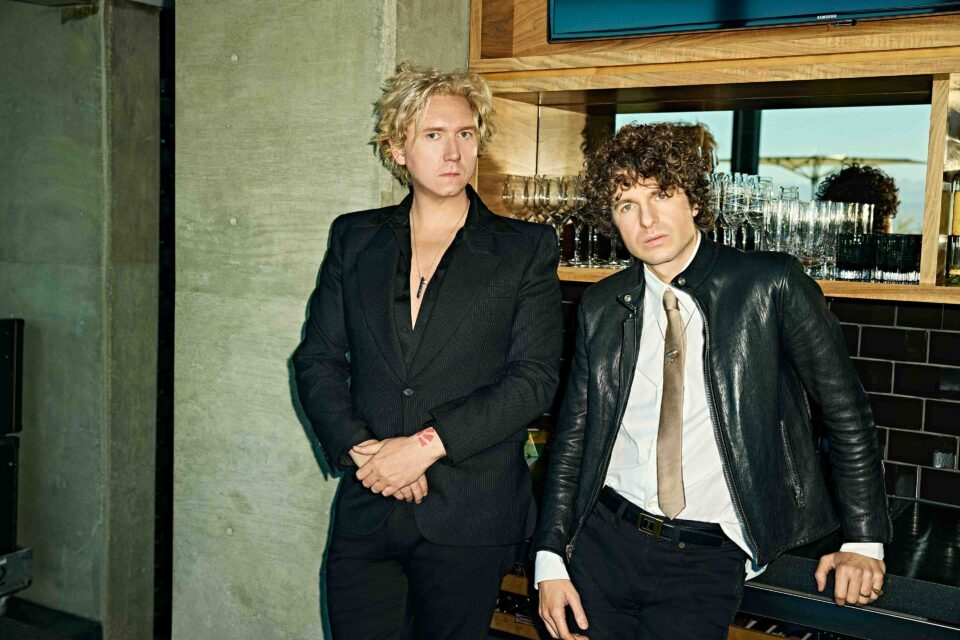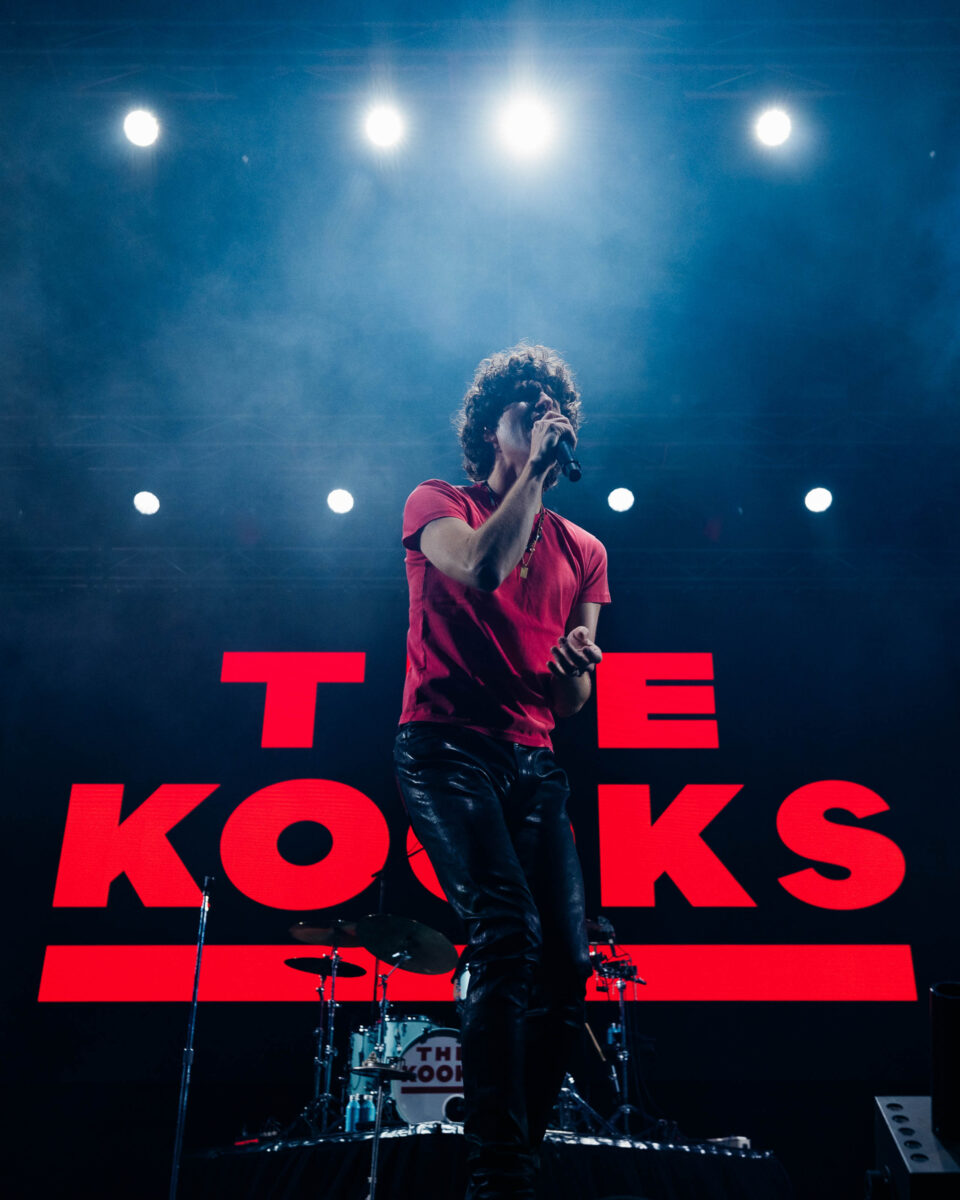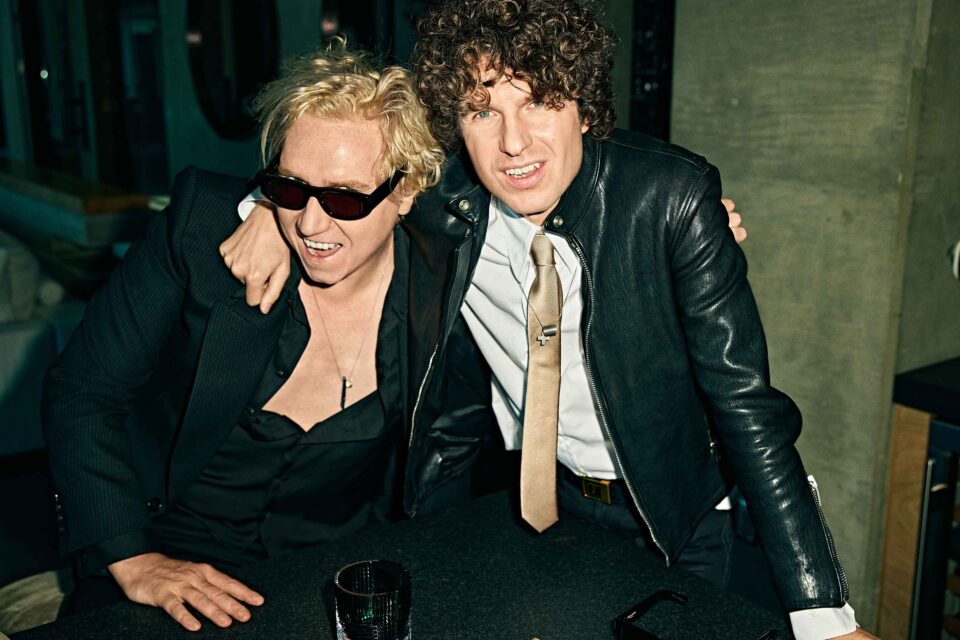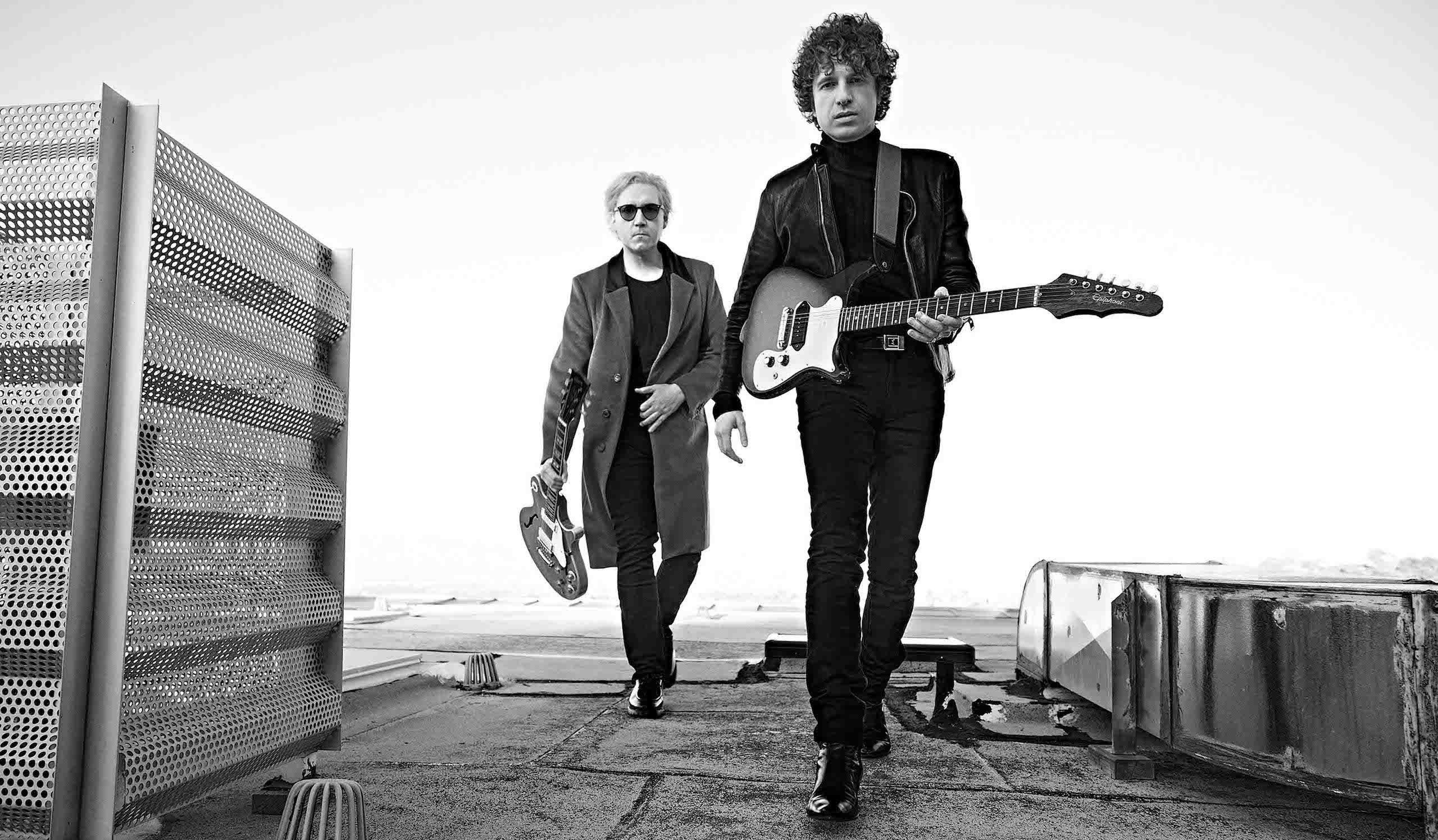The Kooks are about to embark on a 16-date North American tour, and to celebrate we're giving away a pair of tickets to their show in Los Angeles on June 17 at the Hollywood Palladium. Enter to win here, and find tour dates here.
For a band synonymous with the reckless spirit of ’00s indie-rock, The Kooks appear to have mellowed out somewhat on the warm and grounded Never/Know. The UK group’s self-produced seventh studio album finds frontman Luke Pritchard in a very different headspace: a little older, a lot happier, and, as he puts it, much more present. “We’ve always produced quite upbeat music, but I think, at the back of it, there’s always been pain, angst, and frustration,” he says.
While those elements are still there, the delivery has changed. Regret and introspection are now filtered through the softer lens of domesticity and fatherhood. That shift is felt throughout Never/Know, which Pritchard calls a “soul record” and a “snapshot of where I’m at in my life now.” Indeed, much of the album was written at home with his children nearby, a creative process that unfolded over a five-day burst of inspiration. “I’ve never had that before—it just came out of me,” Pritchard admits. “I had probably nine tracks and took it to the band.” The frontman was nervous to hear their feedback, but they loved the new direction. “The guys felt like they could really add to it.”

Despite being recorded collaboratively, Never/Know marks Pritchard’s first official turn as sole producer. It’s a role he’d flirted with on previous records, but this time he fully embraced it. “I used to say I was the overseer of the production,” he says. “It’s a lot of decision-making, which is daunting, but I was so excited. I just wanted the band to do what they do best, and I’d guide it. A lot of it is production psychology—making sure everyone’s feeling good and giving their best.” The album’s foundation was laid with the breezy, retro-tinged “Sunny Baby,” a soulful track that set the tone for everything that followed. “I remember writing it with my oldest kid nearby,” Pritchard recalls. “I played it in the kitchen and my whole family lit up. It just felt right. Vintage, but still fresh.” That moment was a kind of validation, proof that the new direction could connect beyond the band’s existing fanbase.
Family life permeates the album in subtle and not-so-subtle ways. Tracks like “Echo Chamber,” co-written with Jungle’s J Lloyd, capture the early flickers of romance with his now-wife Ellie Rose. It’s about the tension of not knowing if your love is reciprocated—the fraught emotional tightrope of a new relationship. “You fall in love with someone, but you can’t work out if they love you properly back. You wonder, ‘Am I the only one feeling this?’” Elsewhere, the bittersweet “Chinatown” revisits a past relationship after encouragement from his wife to look backward as a writing exercise. It ends up being a cinematic sendoff to a former flame: actress and singer Suki Waterhouse. “When we were together, I was away a lot. It was difficult,” Pritchard says. “The song reflects on that with hopefully a lot of respect.” There are no hard feelings—he looks forward to her set at Reading Festival, where they’re both on the bill.

“I just wanted the band to do what they do best, and I’d guide it. A lot of it is production psychology—making sure everyone’s feeling good and giving their best.”
Another highlight is The Kooks’ interpretation of Wings’ 1979 single “Arrow Through Me.” It might seem like a curveball, but it had long been a band favorite during downtime and rehearsals. “We used to play it backstage all the time,” Pritchard recalls. “It really informed a lot of the vibe of the record. Wings were once considered uncool, but now they feel so hip again. It sounds like something Tame Impala or Rex Orange County might make today.” Never/Know also finds Pritchard engaging with the outside world in a more abstract way. “Compass Will Fracture,” for example, dives into the disorientation of modern life—the overload of conflicting information in the age of “fake news,” the erosion of trust, and the instability of our perceived truths. “It asks questions more than it makes a statement,” he says. “The truth has become subjective—and that’s overwhelming.”
While the subject matter may be introspective, the musical direction keeps things uptempo and accessible. That sonic palette reflects the influence of meditation, which Pritchard credits with reshaping not just his writing, but his worldview. He started practicing four years ago after being inspired by David Lynch’s advocacy for Transcendental Meditation. “It really helped me be more present,” he says. “It’s not about settling down—family life is hectic. But meditation brings clarity.” Pritchard also appreciates that there are no set rules with the practice. “There’s a real equality to it. You don’t have to subscribe to a set of institutional values. It’s just for everyone.”
That sense of peace contrasts sharply with the chaos of The Kooks’ earlier days: frenzied tours, tabloid flirtations, youthful bravado. Playing those older songs still brings a lot of joy, but some of them are harder than others. “I wrote ‘Eddie’s Gun’ when I was 16 and it’s a cheeky song about erectile dysfunction,” he laughs. “My sense of humor is a bit different now, but I’m genuinely grateful. Those songs are a part of people’s lives.” Still, the challenge of compiling a setlist grows more daunting with each new release. “We’re seven albums in, plus B-sides and singles. Every night someone says, ‘I wish you played that song.’” The goal with their upcoming tour is cohesion. “This new album has its own identity, so the setlist will reflect that. I want the show to have a direction.”
“Ultimately, you just want to make music that connects. That’s the goal. And I feel like we’re doing that in a way that really reflects where we are now.”
And while the past is honored, The Kooks have their eyes firmly set on the present. Thanks to TikTok, songs like the 2024 collaborative single “Jeanie” with Lovelytheband have found a new audience. “Old songs become new songs again,” Pritchard shares, marveling at the cyclical nature of music trends. “There’s this ether where things just catch fire.” He also sees his band’s DNA in younger acts: “The Dare, Role Model, even Charli XCX’s last album—there’s that attitude of the naughties coming back.” Being cited as an influence by today’s crop of hitmakers is surreal to Pritchard. “I can’t believe I got to that point, but I love that sense of community.”

Next year marks the 20th anniversary of The Kooks’ debut album Inside In/Inside Out, and plans are already taking shape. “There’s so much that we haven’t put out—unfinished music, demos,” Pritchard says. “I’d quite like to finish some of it.” But for now, the focus remains Never/Know, a record that crystallizes personal transformation without losing the Britpop instincts that made the band an indie staple in the first place. It’s both a continuation and a reinvention, a document of growth that remains deeply rooted in melody. “Ultimately,” Pritchard says, “you just want to make music that connects. That’s the goal. And I feel like we’re doing that in a way that really reflects where we are now.”
Two decades in, The Kooks are no longer just chroniclers of youth and chaos. With Never/Know, they prove that domesticity, reflection, and presence can be just as compelling as hormone-fueled mayhem. FL







